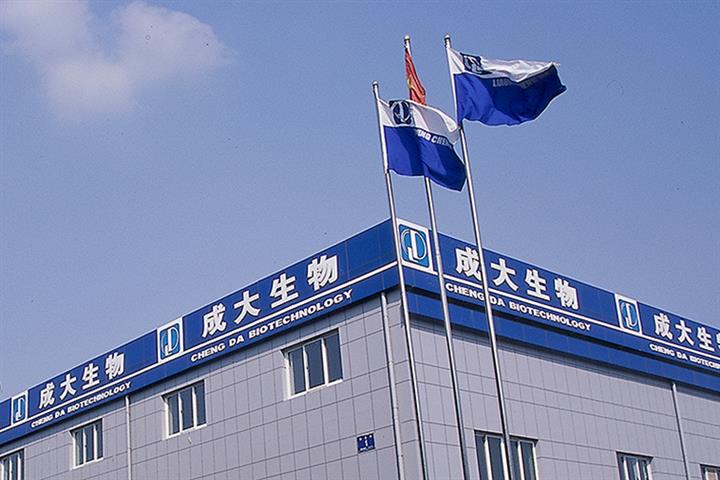 Chengda Biotech’s Shares Sink Over 27% in Worst-Ever Debut on Shanghai’s Star Market
Chengda Biotech’s Shares Sink Over 27% in Worst-Ever Debut on Shanghai’s Star Market(Yicai Global) Oct. 29 -- Chengda Biotechnology’s shares plunged 27.3 percent as they began trading yesterday on the Shanghai Stock Exchange’s Star Market, setting a record low for a stock’s first day on the Nasdaq-style board.
After diving from an issue price of CNY110 (USD17.21) to CNY80 yesterday, Chengda Biotech [SHA:688739] fell 0.7 percent today to CNY79.47. The Star 50 Index, which tracks the 50 largest stocks listed on the board, gained 2.9 percent.
The vaccine maker had an initial public offering price-to-earnings ratio of 54.2, according to its prospectus, while the industry average over the past month was about 38.1. The shares were clearly overpriced, as the Shenyang-based firm raised more than the CNY2.5 billion (USD390.5 million) it had planned.
Chengda Biotech’s growth was almost flat in the first three quarters. It predicted operating revenue of between CNY1.69 billion and CNY1.83 billion, up 2 percent to 10 percent from the same period last year, the prospectus showed. The firm also said net profit likely rose 0.5 percent to 8 percent to between CNY835 million and CNY897 million (USD130.6 million and USD140.3 million).
A lack of product diversity has always been a problem for Chengda Biotech, whose revenues from rabies vaccines made up over 90 percent of its operating revenues from 2018 to last year.
Shares of clothing manufacturer Rumere [SHE: 301088] also retreated on their first day of trading yesterday, dropping 13.2 percent on Shenzhen’s Growth Enterprise Market.
Similar to Chengda Biotech, Rumere’s IPO P/E ratio was 49, versus an average of 23.7 for its sector. Sales on e-commerce sites such as Taobao and Tmall make up more than 99 percent of the firm’s total revenue. Stock prices reflect fundamentals, an analyst pointed out.
Since the Star Market was set up two years ago, not many stocks have dropped on their first day, a senior investment banker told Yicai Global. But on a number of occasions stocks have plummeted a few days after debuting due to poor fundamentals, he added, noting that at the end, the market will push the shares up or down depending on their actual value despite investors’ influence.
Some 56 companies’ stocks have fallen below their issue prices on the Star Market, and all of them had deteriorating business performance. Only three sank more than 40 percent.
Editor: Futura Costaglione